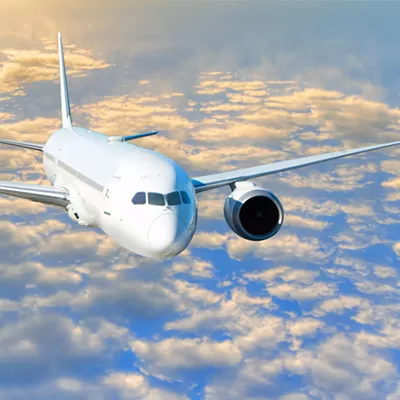The 92nd Air Refueling Wing of the United States Air Force is stationed at Fairchild Air Force Base. By carrying tens of thousands of gallons of jet fuel for midair refueling, it supports fi ghter jets and other planes bound for missions both military and humanitarian all over the globe.
But its tanker planes are decades-old throwbacks from the 1950s and ’60s that have been in desperate need of replacement. Unfortunately, as only Washington, D.C., can, political dysfunction and turf battles have needlessly delayed the contracting process to build the new fleet.
While these outdated planes are being used to support missions all over the world, including combat missions in Iraq and Afghanistan, both the Bush and Obama Administrations have delayed awarding this much-needed military program.
Last year, the contract was awarded to the French company Airbus, but when the Government Accounting Offi ce investigated, they found the bidding processed was rigged, and they told the procurement offi cers to throw out all proposals and start from scratch. Things got even more complicated this summer when the World Trade Organization ruled that Airbus has been receiving illegal subsidies from European countries in an effort to undermine Americanowned Boeing — the only other company capable of delivering the next generation of refueling tanker.
Meanwhile, U.S. Air Force and Air National Guard units in Washington are fl ying the same tanker planes used since the Korean War. Not the same model — the same exact planes.
In a recent newspaper interview, a pilot from one of the aging refueling planes commented that his crew is instructed not even to touch the dusty controls on their planes. “If it’s dusty,” he said, “no one really knows what it does.”
Boeing, who built the original fl eet of aerial refueling tankers that have lasted over 50 years of service, has the factories and skilled American workers that can begin work as soon as the ink is dry on a contract.
Their competitor Airbus and their American partners would have to build facilities and train workers domestically, or rely heavily on foreign manufacturers, outsourcing thousands of high-paying jobs and allowing closely held military information to be handled overseas. All this would only add to the wait time to begin phasing out the existing fl eet with new tankers.
With wars in Iraq and Afghanistan and an unknown future in Iran and other hotspots in the world, these mission support planes will be stretched beyond their limits. As they fl y off from Spokane and other bases with tons of fuel to rendezvous with military planes around the globe, we owe it to them to make sure they have the right equipment they need to complete their mission and return home safely.
Brigadier General Thomas C. Pinckney (Ret.), a decorated fighter pilot, served in the U.S. Air Force for nearly 30 years.



















